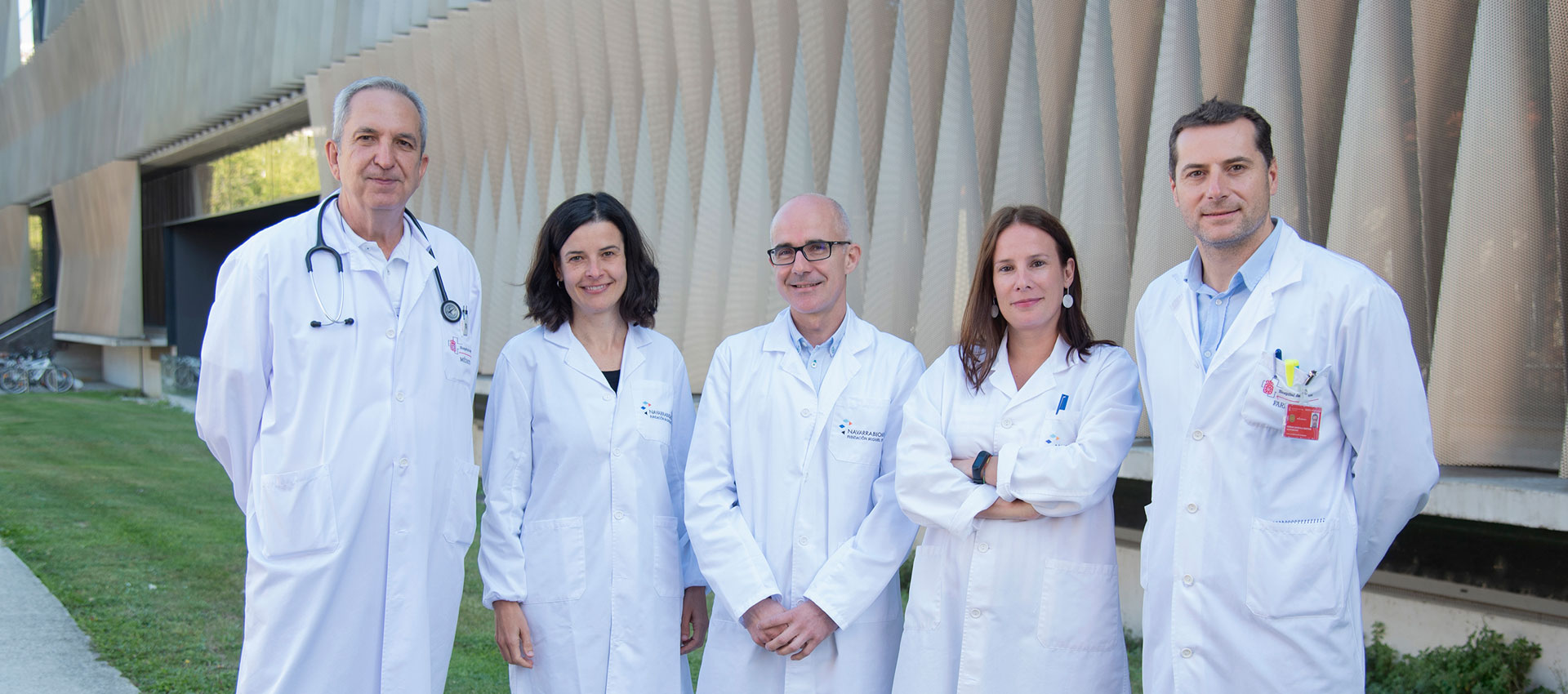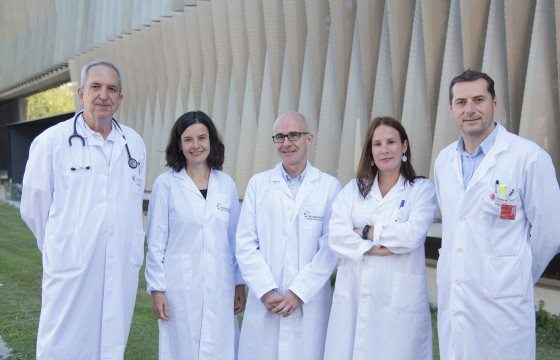
CHN and Navarrabiomed lead multi-centre national clinical study analysing technique to prevent bleeding after colorectal polyp removal
- The results have been published in Gastroenterology, the most prominent journal in the field of gastrointestinal disease
The Digestive System Service at the Navarra Hospital Complex (CHN) has led a multi-centre national clinical study aimed at preventing postoperative bleeding after big colorectal polyp removal – the most common complication after surgery, affecting between 3 and 10 per cent patients. The study was conducted in close collaboration with the Clinical Trials Platform and the Methodology Unit of Navarrabiomed-Miguel Servet Foundation.
The study shows the efficacy of placing a haemostatic clip in patients undergoing polyp removal surgery in preventing post-op bleeding. In 57 per cent of the patients, haemostatic clip placement led to full wound closure, with partial closure in 28 per cent of the cases and failure to close in 15 per cent. Delayed bleeding occurred in 5 per cent of the patients in the clip group, as compared to 12.1 per cent in the control group. Moreover, in the patients with clip closure, the delayed bleeding rate was only 1.5 per cent.
The results of the study, which are part of the Navarrabiomed-CHN/IdiSNA scientific production, were published in Gastroenterology, the most prominent journal in the field of gastrointestinal disease. Also, they were shared in several scientific events, including the 2018 national conference of the Spanish Society for Gastrointestinal Endoscopy (SEED), the congress of the European Society of Gastrointestinal Endoscopy (ESGE), and the 2019 conference of the Spanish Society for Gastrointestinal Disease (SEPD-SED), where it got the award for best oral communication in the field of gastrointestinal endoscopy.
Studies to date did not show scientific consensus or present clear evidence of the impact of this technique on large lesions after polypectomy in both left-sided and right-sided colorectal polyps. It is a pioneering technique, introducing a new approach to patient care.
The study was coordinated by Dr Eduardo Albéniz, a specialist in the CHN Digestive System Service and a senior researcher at the Navarrabiomed Gastrointestinal Endoscopy. It involved 235 patients with risk of delayed bleeding after polypectomy (up to 15 days after surgery). It also introduced a scoring system to predict delayed bleeding individually for each patient, identifying the patients with medium or high risk.
Multi-centre collaboration
In addition to CHN, 12 other health facilities were part of the study, recruiting 235 patients between May 2016 and December 2018. They were Hospital del Mar, Hospital Universitari Mútua Terrassa, Hospital Gregorio Marañón, Hospital de la Santa Creu i Sant Pau, Hospital Juan Canalejo, Hospital Universitario Virgen Macarena, Hospital Universitario Puerta de Hierro, Hospital Universitari i Politècnic La Fe, Hospital General de Ciudad Real, Hospital Universitario HM Montepríncipe, Clinica de Gastroenterología Integral and Hospital San Pedro (Logroño).
The study was conducted in collaboration with SEED and the firm ST Endoscopia (SureClip by Micro-Tech Endoscopy®, Nanjing, China). In addition, the projects carried out by Dr Albéniz in the field of gastrointestinal disease have financial support from La Caixa Foundation and Caja Navarra Banking Foundation.
Upcoming research
The team are currently working on additional research. ‘Based on the clinical trials, we have embarked on a cost-effectiveness analysis to identify the patient subgroups for this procedure, in order to implement both the technique and the associated clinical protocols in the Digestive System Service at the Navarra Hospital Complex (CHN),’ Dr Albéniz explains.
Besides, CHN and Navarrabiomed professionals are considering two further studies: one with patients with left-sided colon polyps (where bleeding is less severe and clinical evidence is scarce so far) and another with patients taking anticoagulants.


